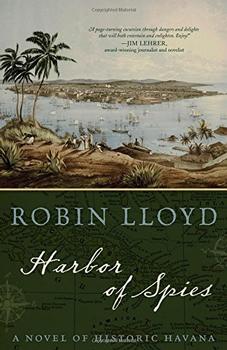Book Club Discussion Questions
Want to participate in our book club? Join BookBrowse and get free books to discuss!
Please be aware that this discussion guide will contain spoilers!
- Which of the novel's descriptions of historical detail impressed you the most?
- "You must trust me," Michael Abbott tells Townsend, who opts to hide him. Was Townsend right to trust him? What would you have done in similar circumstances?
- Townsend muses on the meaning of the Spanish word to survive, which translates "to be on the top of life." He thinks this means "to overcome one's miseries, the sadness, the fears and the loss" and wonders if the meaning of life is merely to confront these challenges. What do you think?
- Emma tells Townsend, "We've got to find Abbott and help Grace Backhouse discover who killed her husband." Why do you think she was so compelled to get involved?
- Emma thinks Townsend's initial refusal to get involved makes him a supporter of slavery. Do you agree?
- Do you think Townsend is a good person? Does he change throughout the novel?
- The author quotes William Watson's account: "Blockade running was not regarded as either unlawful or dishonorable, but rather as a bold and daring enterprise." Do you agree in general? How about in the context of the book?
- Before reading the novel, were you aware of the foreign interest in the outcome of America's Civil War, and their attempts to interfere? Did you know about Cuba's alignment with the Confederacy and the role the island played in the conflict?
- Savage asks Townsend to become a spy for the Union, telling him he should stand up for his conviction that slavery is wrong. Do you think that's why he ultimately agrees?
- Like the term "blockade runner," "spy" has a negative connotation. By agreeing to be a spy, is Townsend exchanging one bad situation for another –the lesser of two evils –or is being a spy truly the more noble course of action?
- Don Pedro remarks that the British are hypocrites because they block slave ships coming into Cuba on the one hand but purchase Cuban sugar and provide loans to the plantation owners on the other. Britain abolished slavery in 1833; do you think they helped perpetuate it elsewhere by their actions?
- Townsend makes excuses for his grandmother's actions –"These methods of harsh discipline were normal in Cuba. She felt an obligation to keep the family plantation going. It was her heritage." Why would he try to justify her actions? Do you find yourself making excuses for others' behavior or choices?
- Several times, the book touches on the lives of emancipados – slaves freed by England but transported to Cuba and more or less enslaved again. Had you heard of this practice? Why did Cubans turn a blind eye to it? Are there questionable practices we turn a blind eye to today?
- Townsend believes that if his mother had stayed on her Cuban plantation that "her principles would have slowly eroded," and that she'd become like her mother who "had been willing to look the other way all too often and embrace brutality." Do you think this would have been the case?
- Townsend felt his father would be disappointed that he'd been expelled from the Naval Academy. Has your career turned out as you expected? If you have adult children, what do you think of their career choices?
- Townsend called the head of the Naval Academy a "dunderhead," sealing his academic fate. Do you recall any words you've regretted, or that have changed the course of your life?
- While imprisoned and fearing for his life, Townsend "conjured up the vision of a formation of honking Canada geese flying over a small island of loblolly pines and wild asparagus" to calm himself. Do you have a similar technique when stressed, and if so, what do you think about?
- Townsend "knew there were dark secrets about his mother's past in Cuba." Have you ever uncovered anything about your parents or grandparents that surprised you?
- When at the Naval Academy, Townsend was frequently involved in fights – both verbal and physical – over the Union and Confederate positions. Do you have political divides with friends, family or co-workers, and if so, how do you handle them?
- Townsend remembers his mother telling him that it's important to know himself, and to never lie to himself. Have you ever received words of wisdom from a parent or elder that you've learned to live by?
Unless otherwise stated, this discussion guide is reprinted with the permission of The Lyons Press. Any page references refer to a USA edition of the book, usually the trade paperback version, and may vary in other editions.
